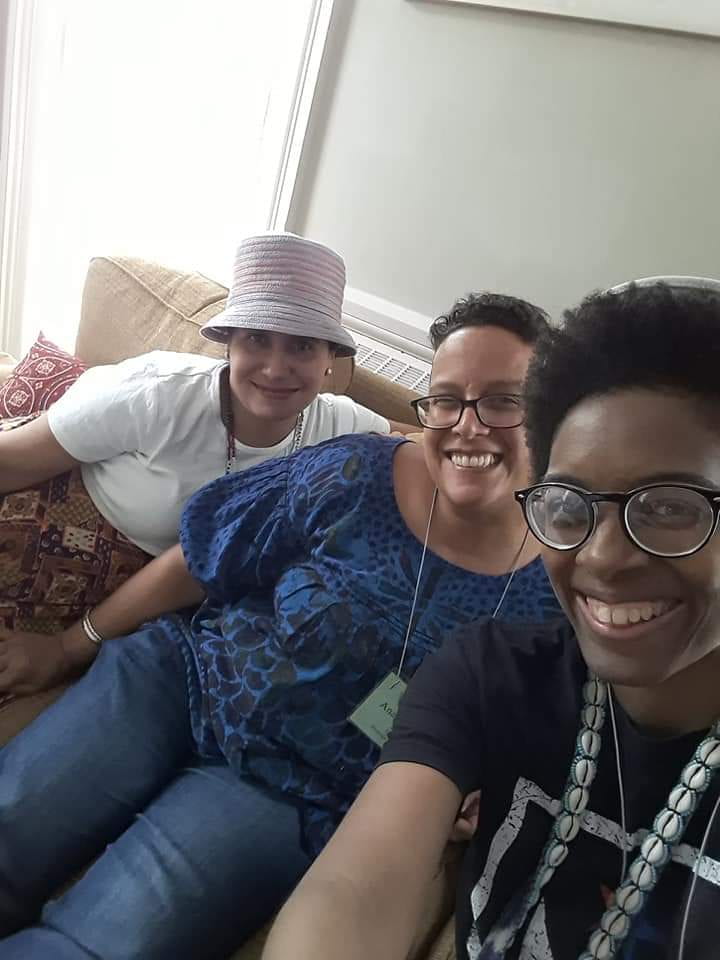Authors: Alaí Reyes-Santos and Ana-Maurine Lara
Over the past weekend, we presented at the International Herbalist Conference in Wheaton College, Norton, Massachusetts. We were invited to present on AfroIndigenous approaches to violence and trauma, and the Caribbean Women Healers Digital Humanities Project at UO.
It was energizing to feel everyone’s excitement about the project. We presented to around seventy people and had many conversations with individuals who wish to follow up with the project. A panel attendee, a Dominican herbalist currently learning from her family’s traditional healers, said: “This project names and honors the work we are doing.” Other healers, herbalists and students of traditional AfroIndigenous healing systems in the Americas are hoping to have access to the website and share it in their communities throughout the islands and the US. Everyone responded enthusiastically to the fact that it will be available in Spanish and in English.
This was also a great opportunity for us to practice how to best describe the history of the project. We discussed how it emerged from our eight years of experience fostering ceremonial treaties of mutual respect and exchanges between Indigenous, Afro-descendant and AfroIndigenous tradition keepers in the US, Latin America, and the Caribbean.
We also encouraged participants to examine how they themselves are documenting and supporting elders in their communities in their process of transmitting traditional healing knowledges across generations. We showed the website created by UO Library team members to keep track of the process of putting together the final website. We shared the project board, digital tools used, and the roles of team members whose expertise in the Digital Scholarship is allowing us to deepen our ethical praxis to make the website accessible to impacted communities.
We made visible the collective labor and time devoted to reaching our goals to illustrate for others how they can also imagine similar projects in other communities, or at least what are some tools and documentation practices that have been productive for the Caribbean Women Healers project team.
This was a great start for what we hope are many conversations to come.




